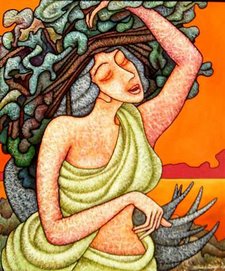A city which is 3000 years old, the fascination for Istanbul stems from its place in history, and, of course, the Bosphorus. A city that started its existence as a nondescript fishing village, underwent several changes into Byzantium, then Constantinople, to finally metamorphasize into Istanbul. A city that was witness to the fortunes of three great empires, and straddles two continents, Istanbul came to be known as the “Paris of the East”, and, to reaffirm this, the first great international luxury express train ever run – the Orient Express (of Agatha Christie fame) – connected Istanbul with Paris.
The history of Istanbul is rich and full of interesting tales.
Its rumoured that Byzas, a Megarian colonist (from the Doric colony of Megara in Ancient Greece), before leaving Greece, asked the oracle at Delphi where he should establish his new colony to which the oracle replied “ opposite the blind”. Sailing up the Bosphorus, Byzas noticed the settlement on the Asian shore at Chalcedon. Looking to the left they saw the natural harbour of the Golden Horn on the European shore, they wondered if the people at Chalcedon were blind not to have settled on the European side. So they set up their new city Byzantium “opposite the blind”!
Byzantium submitted to Rome and fought Rome’s battles for many years till it was won by Septimius Severus who razed it to the ground and rebuilt it as Augusta Antonina.
In 324 AD, Constantine won control over this city, declared it to be the “New Rome” or Constantinople. For the next many decades, Constantinople would be the centre of their empire.
Finally, in what is referred to as the “Fall of Constantinople” or the “Conquest of Istanbul” (depending on the perspective – Western or Muslim), Mehmet II, the young Ottoman Sultan, conquered what would become Istanbul. After conquering the Golden Horn, Mehmet’s forces were being frustrated by the large city walls. It is said that a Hungarian cannon manufacturer called Urban offered to build the most enormous cannon ever built to tear down the city walls. It appears that Urban decided to go to Mehmet after discovering that the existing Byzantine emperor had no money to pay him!
Mehmet’s entry into Istanbul on the evening of 29th May is celebrated every year. Those parts of the city that did not resist his troops were spared and their Churches guaranteed. Those that resisted were sacked, and their churches turned into mosques. Sancta Sophia (now known as Hague Sophia), then the biggest and most magnificent Church of the Christian world, was immediately converted to a mosque.
It is said that with the growth of the Ottoman Empire, Istanbul became a melting pot of different cultures. On its streets, people spoke Turkish, Greek, Armenian, Russian Arabic, Romanian, Italian, French, German, English etc. Sounds completely like exotica!
Subscribe to:
Post Comments (Atom)



No comments:
Post a Comment